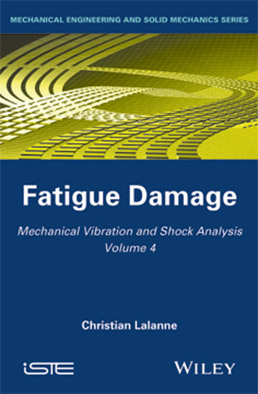
Everything engineers need to know about mechanical vibration and shock...in one authoritative reference work!
This fully updated and revised 3rd edition addresses the entire field of mechanical vibration and shock as one of the most important types of load and stress applied to structures, machines and components in the real world. Examples include everything from the regular and predictable loads applied to turbines, motors or helicopters by the spinning of their constituent parts to the ability of buildings to withstand damage from wind loads or explosions, and the need for cars to maintain structural integrity in the event of a crash. There are detailed examinations of underlying theory, models developed for specific applications, performance of materials under test conditions and in real-world settings, and case studies and discussions of how the relationships between these affect design for actual products.
Invaluable to engineers specializing in mechanical, aeronautical, civil, electrical and transportation engineering, this reference work, in five volumes is a crucial resource for the solution of shock and vibration problems.
Fatigue damage in a system with one degree of freedom is one of the two criteria applied when comparing the severity of vibratory environments. The same criterion is also employed for a specification representing the effects produced by the set of vibrations imposed in a real-world environment. In this volume, which is devoted to the calculation of fatigue damage, the author explores the various hypotheses and models used to describe the behavior of material suffering fatigue and the laws of fatigue accumulation.
The author also considers the methods of counting response peaks, which are used to establish a histogram when it is not possible to use the probability density of the peaks obtained with a Gaussian signal. The expressions for mean damage and its standard deviation are established and other hypotheses are tested.
1. Concepts of Material Fatigue.
2. Accumulation of Fatigue Damage.
3. Counting Methods for Analyzing Random Time History.
4. Fatigue Damage by One-degree-of-freedom Mechanical System.
5. Standard Deviation of Fatigue Damage.
6. Fatigue Damage using other Assumptions for Calculation.
7. Low Cycle Fatigue.
8. Fracture Mechanics.
Christian Lalanne is a Consultant Engineer who previously worked as an expert at the French Atomic Energy Authority and who has specialized in the study of vibration and shock for more than 40 years. He has been associated with the new methods of drafting testing specifications and associated informatic tools.